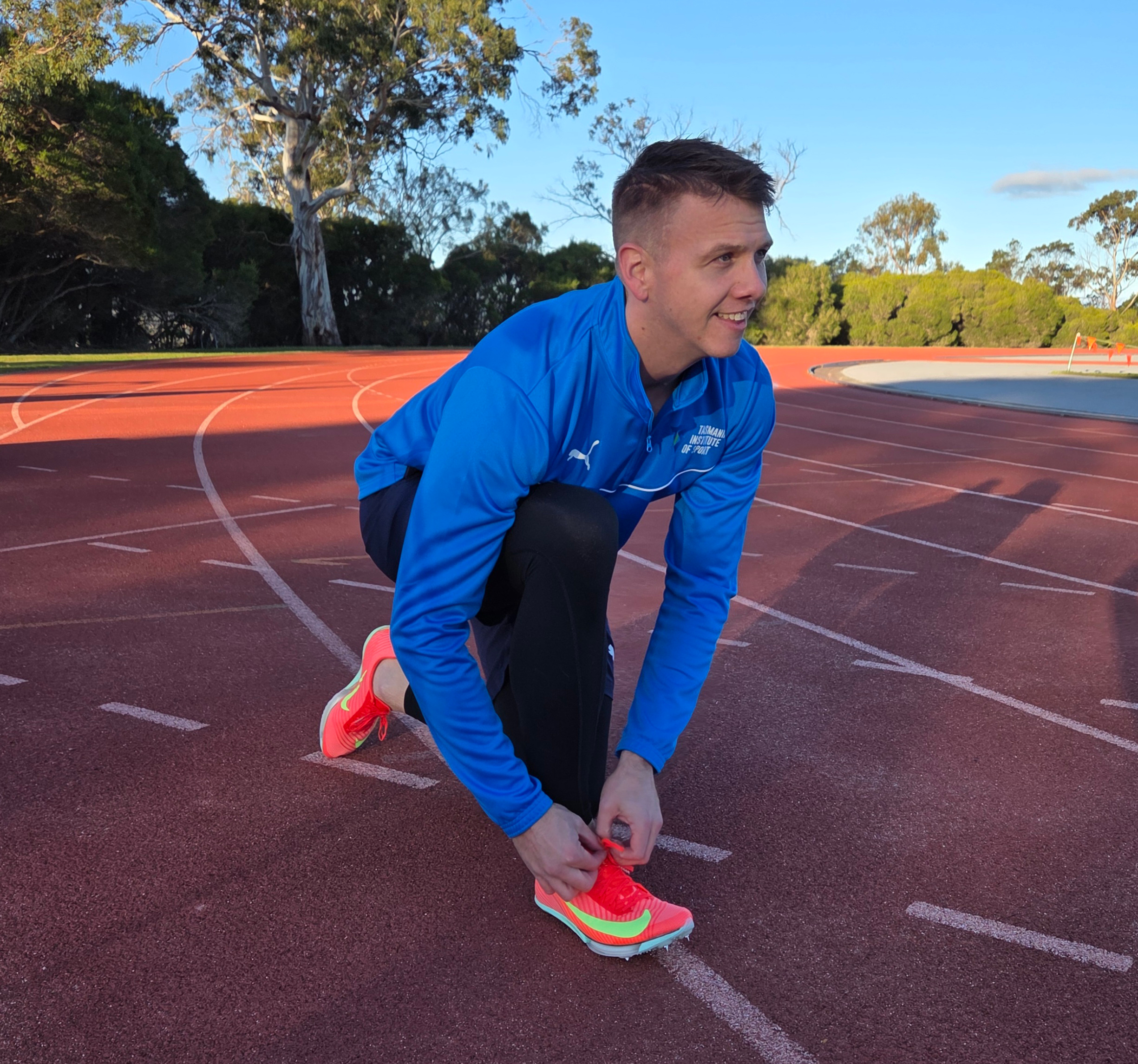
Shannon Winchester’s whirlwind World Para Athletics Championships qualification is a success as much for his nationwide support structure as the athlete himself.
A major local and national collaboration spanning four states and about 20,000 kilometres provided the platform from which the 35-year-old track and field newcomer dramatically achieved selection to the New Delhi World Championships in September.
Winchester ticked the final qualification requirement for the T38 100 metres when he ran 11.71 seconds into a 0.4m-per-second headwind at Perth just days before the qualifying window shut on June 28. It represented the culmination of a hectic four-week process involving as much hard work off the track as on it.
Inspired by watching swimmer Alexa Leary win two gold medals at last year’s Paris Paralympic Games, Winchester began to consider his own eligibility for para sport. He had sustained a traumatic brain injury, following a motorbike accident, which resulted in the neurological condition ataxia - characterised by difficulties with movement and balance.
A week after the Paralympics, the Hobart finance broker and father-of-one attended an Australian Athletics classification session followed by a Future Green and Gold come-and-try day.
Despite a mix-up over start times, which afforded him just a two-minute warm-up, Winchester’s second 100 m race saw him record a time of 11.85 s. This was equal to the Australian Athletics development standard for the World Para Athletics Championship, despite Winchester having no coach and no formal sprint training.
Having been classified as T38 (for athletes with mild to moderate coordination issues), Winchester subsequently appeared on the radar of Australian Athletics and the Tasmanian Institute of Sport’s (TIS) newly established Para Unit, being coordinated by Dr Kirstie Turner.
“We went about putting some support around Shannon to give him the best possible chance to get that qualification time before the end of the window,” she said.
Working with TIS Athletics Performance Advisor Jason Allie, Turner linked Winchester up with Sydney-based sprint coach and qualified physiotherapist Vasanth (Vas) Krishnan.
“Jase and I tag-teamed being at the track with Shannon and shared video with Vas so he could see what Shannon was doing,” she said.
“We were conscious that we weren’t going to change a huge amount in four weeks, but we were able to make Shannon feel more comfortable so when he did go away, he was in a position to race.”
Winchester registered with UTAS Athletics Club, but opportunities were running out to record a second World Championship qualifying time.
The next available race in Sydney did not initially have a 100 m para event. The TIS joined forces with Australian Athletics and NSW Athletics to facilitate a race on the program whilst also booking Winchester’s hotel and flights. Come race day however, Winchester unfortunately strained a hamstring during the warmup and was unable to race.
Confirmed as a low-grade strain by the TIS medical team, Winchester was free to race a week later on another hastily organised trip to the Gold Coast, which he thought would be his last chance.
Hampered by high winds, pouring rain and concerns about his hamstring, Winchester said he could not perform beyond 80 per cent and again fell short of the required time.
“I thought that’s the end of the World Champs dream, we’ll now focus on the Commonwealth Games next year,” he said.
However, Krishnan learned from another coach that an event was being staged in Perth five days later and a call to Turner sparked a final glimmer of hope.
Turner contacted Australian Athletics and the acting head of the WAIS para unit, Brant Garvey, asking if Winchester could race.
“At that time, they did not have a men’s race, only a women’s, and for it be valid it had to be a single-sex race,” Turner said. Ultimately it was possible to facilitate a men’s race. “We were really lucky to have that relationship with WAIS because this would not have happened without them.”
Despite a weather-enforced missed flight connection resulting in a six-hour delay in Sydney, Winchester eventually reached Perth and duly ran a time of 11.71 s (-0.4), bettering the required time of 11.85 s.
“The next day I was told I would be going on a training camp with the Australian team in Brisbane in a week and going to represent Australia at Worlds in India in two months,” he said.
“Suddenly I’d gone from being a 35-year-old dad who has been in the sport for six-weeks to wearing the green and gold on the world stage. It’s been an amazing journey and a hell of a story. The TIS were incredible all the way.”
Turner is proud of how so many individuals and organisations came together to give Winchester the stage on which to perform.
“We all jumped into action to provide the support to give this athlete the best chance,” she said.
“We all knew he could do it despite almost zero specific training, having not had a coach four weeks prior, having only just got sprint spikes, having a hamstring strain and missing a flight because of the weather. It just felt like every single hurdle that appeared, as a team statewide and nationwide, we were able to overcome it.”
“The Para Unit at the TIS was working with the Para Unit at WAIS, Athletics West, Paralympics Australia, Australian Sports Commission and Australian Athletics. There were five or six key entities that all played an important role in this and had everyone not been able to come together it just wouldn’t have happened.”
Written by Rob Shaw